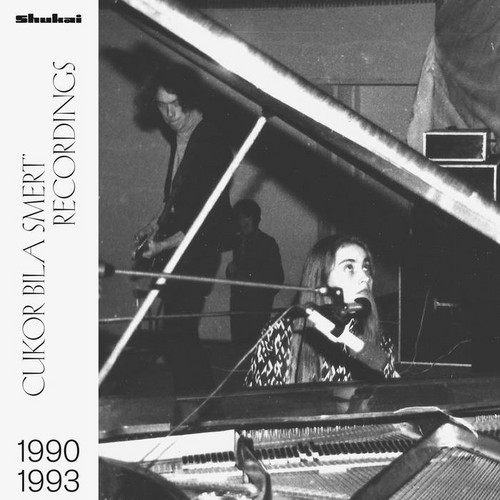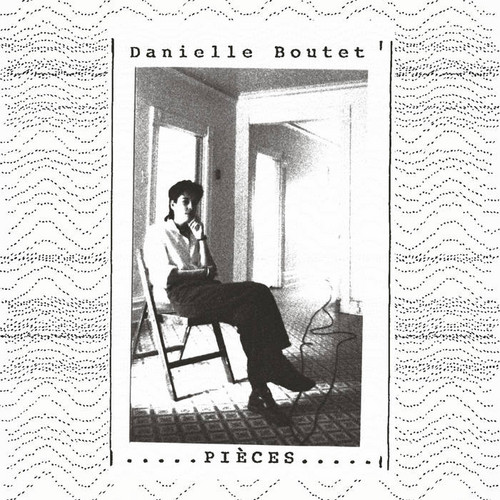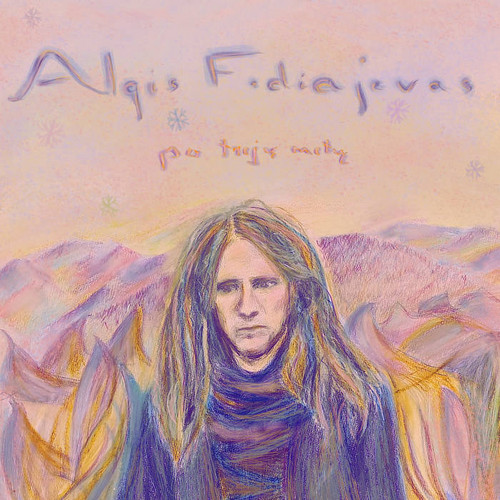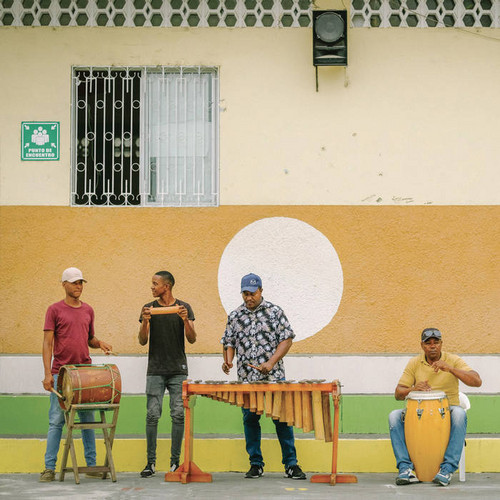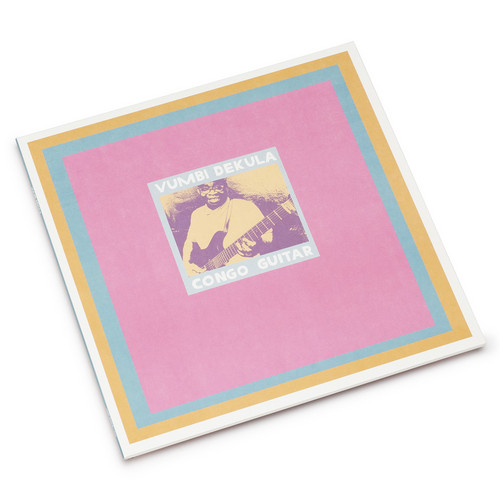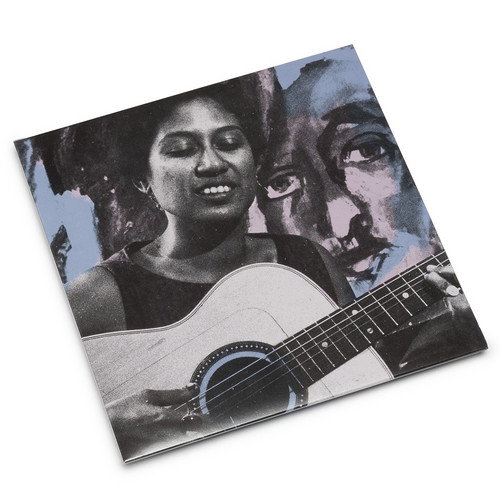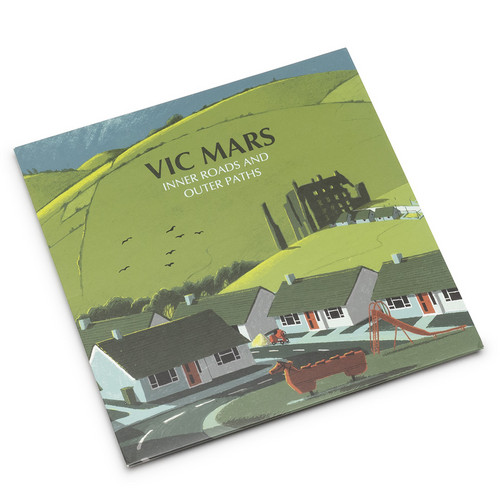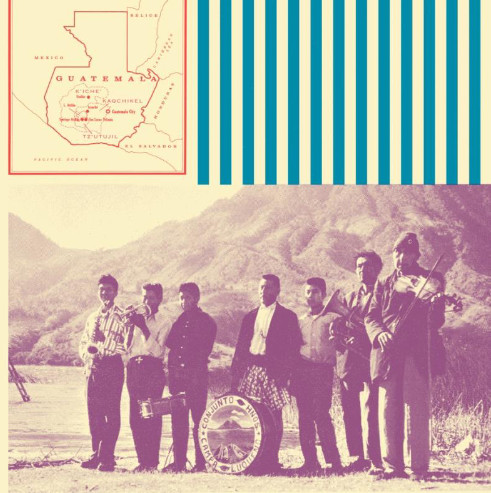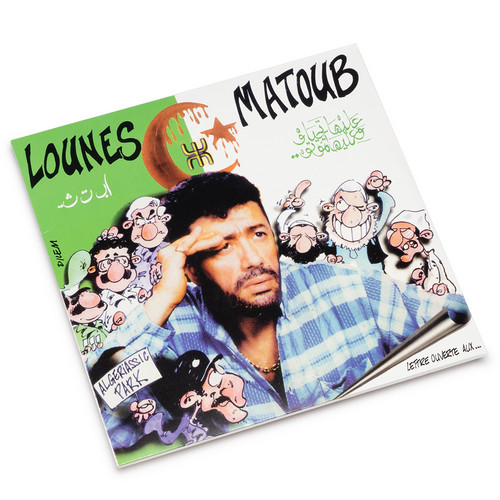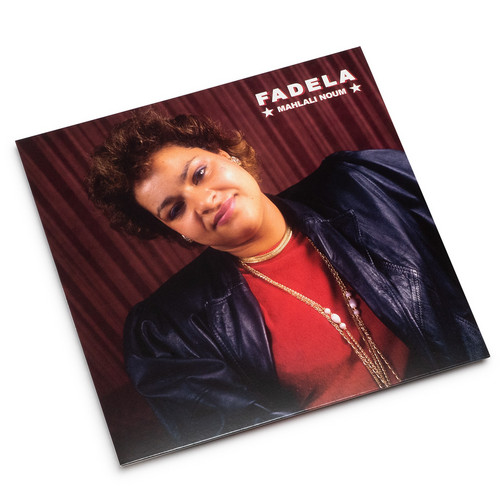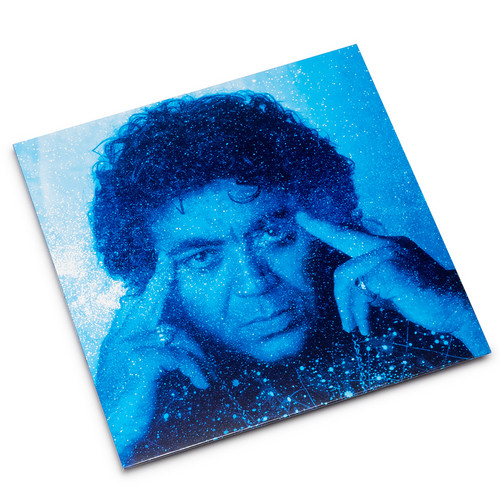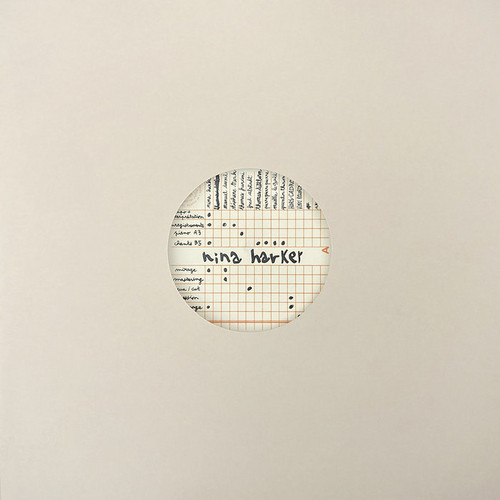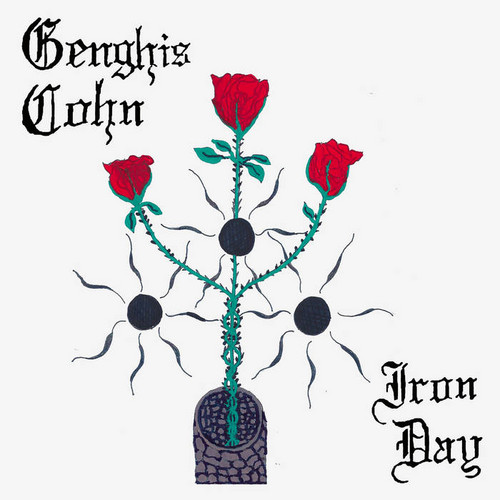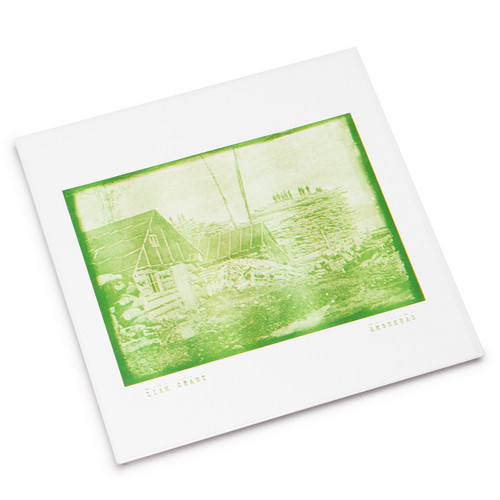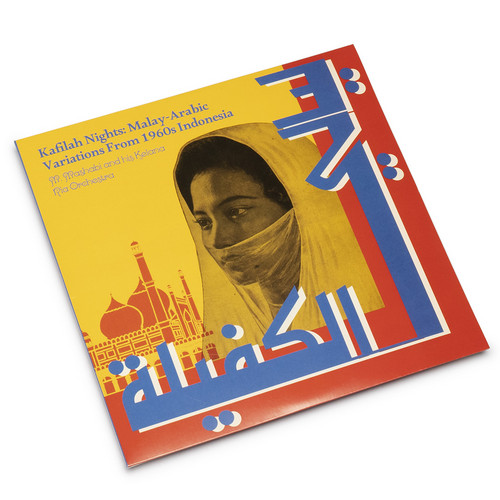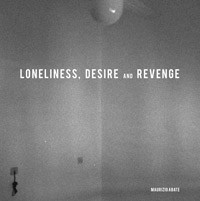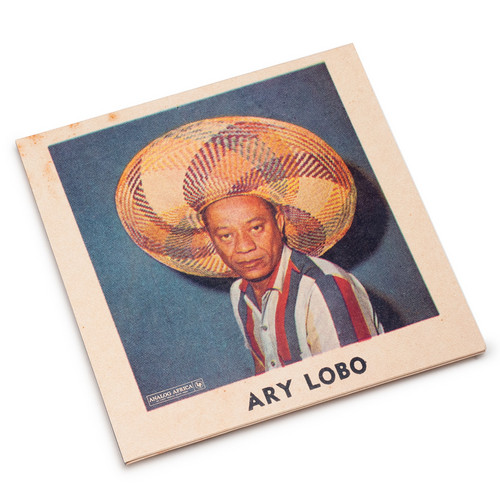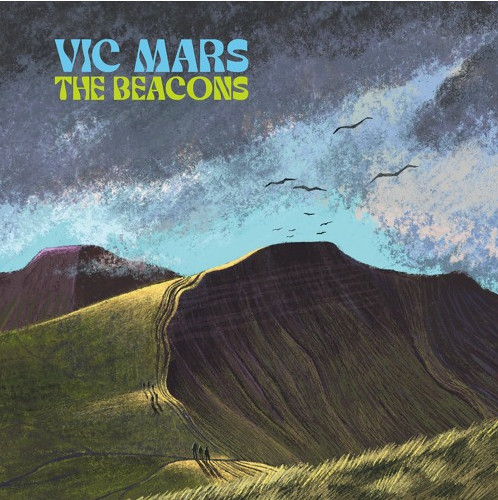Folk /
Recordings 1990—1993
The founders of Cukor Bila Smert’ (Ukrainian: Цукор – Біла Смерть, English: Sugar – White Death) band were Svitlana Okhrimenko (a.k.a. Svitlana Nianio), Oleksandr Kohanovs’kyi, and Tamila Mazur, who studied at the Reinhold Glier Kyiv Academy of Music in 1984-1988. In the summer of 1988, they got acquainted with Eugene Taran, a young guitarist and artist. He joined the band and also became the ideologist of Sugar – White Death. Moreover, Eugene coined the name for the band: the irony towards the …
Pièces
Big Big Tip! Danielle Boutet’s Pièces is a mysterious artifact of Quebecois marginalia, self-released in 1985. Moving from languid ennui to high drama, Pièces is a dreamy gestalt, an album that borders Chanson, spoken-word, jazz noir, and minimalism, conjured from the chasm between acoustic and electronic realms. Pièces allows us a window into the highly intimate songcraft and compositional skill of an artist who longed to linger not in the public eye, but in relation with others and the world a…
Po Trejų Metų
*70 copies limited edition* An oaken prism clothed in precious gems of labyrinthine fingerpicking totems inscribed with carvings of ancestral druids (John Fahey, Robbie Basho...). Let the ripe fruits of the quivering arrow melt from the Lithuanian bow.
Agua Larga: Traditional & Imaginary Cimarron Music
Agua Larga offers an immersion into the Afro-Ecuadorian culture of the province of Esmeraldas. The authors have captured how music is part of the daily life of the inhabitants, and how it interacts with the other sound elements that surround it. The musical material is thus accompanied by stories, poems and scenes of everyday life captured on the spot, far from aseptic studios, in public spaces, on river banks or by the sea. The guiding theme is water ("agua" in Spanish), in all its forms. It wa…
Congo Guitar
Vumbi and the guitar go back a long time. Born with polio in the Kivu province of North Eastern Congo, Vumbi grew up in a Swedish missionary home and picked up the guitar at an early age. Listening intently to the radio, he learned the style and rhythms of Rumba and Soukous from the giants of the Congolese guitar sound, Dr Nico and Franco. "Listening and playing Soukous music makes you feel happy to be alive and you just have to dance to it no matter what". In the early 80’s Vumbi emigrated to T…
I’m The Sky: Studio And Demo Recordings, 1964–1971
*2023 stock* Norma Tanega’s I’m the Sky: Studio and Demo Recordings, 1964–1971 is a comprehensive survey of the pioneering folk artist’s two commercially released studio albums, an unreleased album, and a trove of unheard demos. Before playing a pivotal part in folk music’s cultural crossover in the ‘60s, Tanega was a curious little girl born at the very end of the ‘30s to a multicultural Navy family in Long Beach, California. Her parents often brought her to Los Angeles for piano lessons, and e…
Inner Roads And Outer Paths
*300 copies limited edition* Inner Roads and Outer Paths is Herefordshire born Vic Mars’ third release on Clay Pipe Music. It follows last years ‘The Soundtrack To The Hospice’ commissioned by Gideon Coe for BBC 6 Music, and 2015s critically acclaimed ‘The Land and the Garden’.
Inspired by in part by Alfred Watkins words and photographs of Herefordshire, the record also harks back to a period in Vic’s youth spent exploring the abandoned houses and factories on the fringes of his home town; the i…
Music Of Guatemala
Tip! First reissue of these cult 1974 recordings of a Mayan brass band playing funeral dirges and popular songs in its distinctive extended harmonic and rhythmic style. The members of the San Lucas Band lived in the mountain village of San Lucas Tolimán, Guatemala, playing local events of both religious and social nature. The pride of their town since 1922, the band represented a fast disappearing musical tradition when these recordings were originally released in 1975. Their unique sound deriv…
Lettre Ouverte Aux...
"Love, kindness and sincerity characterized his life and his work. He was a man, a rebel and a poet, all at the same time. He served art through his poetic and musical virtuosity, and through his art, he served the struggle of his people for survival: Imi d-luleɣ d aqbayli, isem-iw imenɣi (in Kabyle since since he was born Kabyle: “They call me struggle”). After many brushes with death, he always came back with more vigorous, courageous and sensitive to the world. He was a legend in his lifetime…
Mahlali Noum
Fadela is an internationally renowned artist from Oran (Algeria) who began her musical career in the 1980s alongside Boutaiba S'ghir, Khaled and avant-garde producer Rachid Baba Ahmed. With her powerful, haunting voice, Fadela has brought a new dimension to raï music, skilfully blending traditional sounds with modern influences. Her songs are infused with emotion and passion, telling stories of love, pain and resilience. Over the years, she has released several successful albums, reaching millio…
After Raï Party, 1992-2008
Except from Rachid Taha, who allowed himself a few forays into the teeming, vibrant heaths of techno, no raï singer other than Cheb Malik has ever ventured into this terrain known for its abundance of sound. If you know about Malik Adouane's ancestry, this is hardly surprising. Born in Librecourt, near Lens, he comes from a union between an Italo-Celtic mother who instilled Western sounds into his ears and a father, a former miner born in Biskra (north-east Algeria), a palm grove near the desert…
nina harker
Freeform, pigeon-hole dodging, stylistic merry-go-round, restless, weird and addictive - the long anticipated return of Nina Harker!
Borrowed Tongue
Borrowed Tongue is the debut solo album by Korean singer-songwriter Minhwi Lee. It’s a mysterious, strangely compelling thing, an album of rare poetry, and remarkably self-assured. Originally released in November 2016, the album made waves, winning best folk album of 2016 at the 14th Korean Music Awards. Its eight songs, written and predominantly arranged by Lee, don’t reveal their secrets easily, or at first blush; rather, they take their time slowly to unfurl in her listeners’ worlds. There ar…
Iron Day
North London’s midnight man tumbles out his treehouse to deliver twelve potions of minor healing in “Iron Day”, his questing, soul-salvaging songbook. Brimming with majesty and maraud in equal parts, Genghis Cohn synthesises trad. English folk and woe with surrealist dream sequences on this debut long-player. A romance of two hedgehogs, devotional bone temples, broken shadows and sausage kings, GC conjures a grand slab of folk music that, in a warmly recognisable form, challenges its ancient rew…
Amoskeag
Every song on this album taps into raw, rich veins of sound that are simultaneously dense but easy to enjoy; vintage and modern; new yet timeless. The album kicks off with a monster track entitled "Stratton-Eustis" - one of those complex yet flowing tunes that makes you think overdubs were involved or the player has grown an extra set of limbs. Then there's "Kenduskeag,” a raga-esque group recording in an abandoned New England Conservatory building with Ethan WL and the long standing anonymous d…
Kafilah Nights: Malay-Arabic Variations From 1960s Indonesia
In the early 1960s, two of the best talents in the Indonesian music scene, songwriter and band leader Adi Karso, known for his hits "Papaya Cha-Cha-Cha" and "Balonku" and Gambus musician Munif Bahasuan teamed up to form Orkes Melayu (Malay Orchestra) Kelana Ria. Between 1961 and 1964, Kelana Ria recorded 48 songs that were spread over four records, Kafilah, Yam El Shamah, Ya Mahmud, and Ya Hamidah, which become the primary sources for this compilation. These four albums changed the trajectory of…
Ary Lobo 1958-1966 (Limited Dance Edition No.19)
"Hailing from Belém do Para in the north of the country, Ary Lobo was ready to launch his campaign on the south of the country and set out for Rio de Janeiro in October of 1955. There he encountered the usual southern biases against singers from the North and it was only after meeting Gadé, a respected pianist, that he was able to secure an audition at Rádio Mauá. But the opportunity nearly turned into a disaster as he arrived to that session in such a frail state that he couldn't perform. Insuf…
The Beacons
Clay Pipe Music is thrilled to announce The Beacons by Vic Mars - the enigmatic producers third LP for the label. Since 2019s Inner Roads and Outer Paths his music has found a new audience having been used as the soundtrack to the game I am Dead by British interactive studio Hollow Ponds.
While his previous two albums were inspired by the pastoral landscapes of Herefordshire, The Beacons, embarks on a journey westward into Wales, inviting listeners into the rugged terrain of the Brecon Beacons a…
